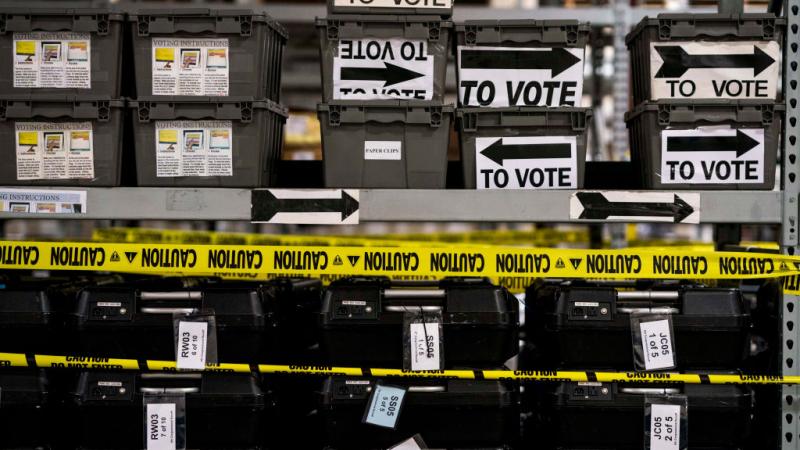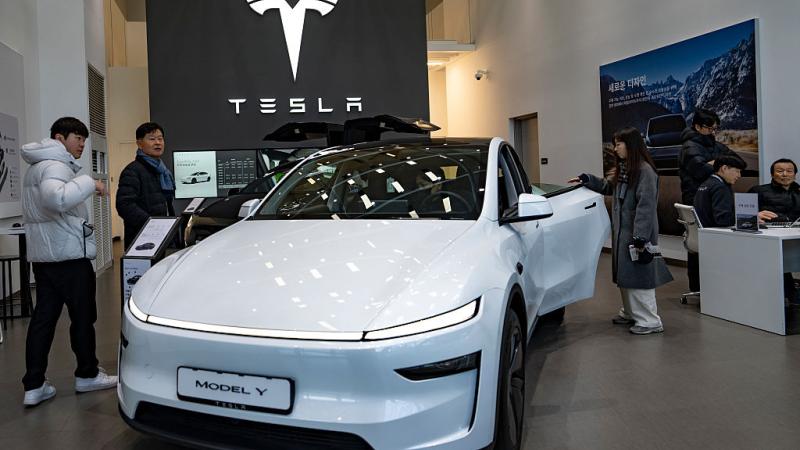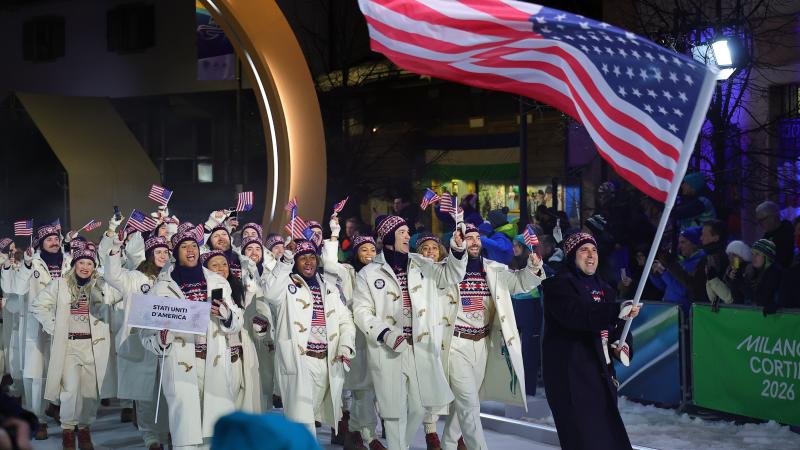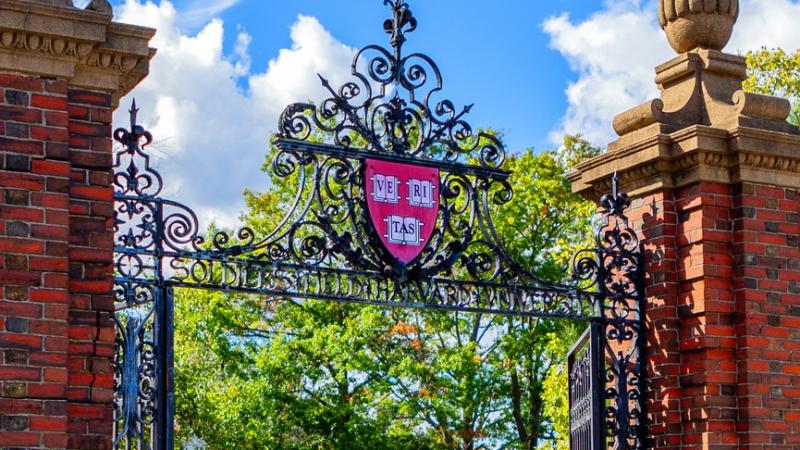Is Musk’s new party nothing more than a spoiler? That may be what he wants
Wallace, Perot, Nader, Stein, now Musk? The mogul has floated securing just enough seats in Congress to make his America Party voting block indispensable as a spoiler for the purpose of forcing platform concessions.
American history shows that Elon Musk’s new third party is not likely to be viable on its own, but may garner enough support to pose a threat to both Republicans and Democrats by swinging local elections or forcing the major parties to compromise with his platform.
Billionaire Tesla founder Elon Musk’s once close relationship with President Donald Trump soured shortly after the mogul left his special role advising the White House. However, his sharp criticism of the president’s signature legislation, the One Big Beautiful Bill Act, captured the public's attention. Moreover, his expression of frustration over Congress’s failure to meaningfully cut spending pushed Musk to add yet another mold-breaking endeavor to his resumé: starting a third party.
“When it comes to bankrupting our country with waste & graft, we live in a one-party system, not a democracy,” Musk posted to X on Saturday. “Today, the America Party is formed to give you back your freedom.”
Not viable as a winner, but a significant factor in who wins
Third parties in the American electoral system are rarely viable in securing the White House, but that doesn’t mean that they can’t wield outsized influence and pose a big threat to either of the major parties that dominate politics today.
In fact, Musk’s own statements suggest he’s aiming to create a spoiler party to exert pressure on both Republicans and Democrats in Congress in order to achieve his agenda—which centers on ending the spending spree that grips Washington. If the party were to secure enough seats to exercise a de facto veto on the passage of legislation, it would make his America Party’s support indispensable.
Musk’s project may find fertile ground among voters. The most recent 2024 polling indicates that a majority of voters, 58%, support having a third major party in the United States, according to Gallup. Though this is a small decline from previous measurements, a third-party option garners support from a majority of independents and Democrats. Political independents overwhelmingly agree with the idea with 69% support.
A recent Quantus Insights poll delivered a shock result, indicating that 40% of Americans would support a political party launched by Elon Musk—with 14% being “very likely” and 26% “somewhat likely.” Most of that interest came from young men and Republicans, the polling firm said.
But, even with a fraction of that support, Musk’s new political party could upset the political apple cart.
The historical record of third-parties in presidential politics
Just in the last 60 years, there have been several distinct examples of third parties wielding an outsized influence on American politics, ranging from a segregationist's 1968 bid to lock both parties out of an Electoral College victory to spoiler parties that may have cost Democrat Hillary Clinton and others a seat behind the Resolute Desk.
Hillary Clinton’s former campaign staff and allies widely blamed Green Party candidate Jill Stein for siphoning valuable votes in key battleground states in the 2016 campaign against Donald Trump. In fact, Stein’s vote share exceeded President Trump’s margin of victory in three states that were key to the Clinton campaign’s loss: Michigan, Pennsylvania and Wisconsin. With these states under her belt, Clinton would have won the Electoral College, and thus, the presidency.
Historically, other third party candidates have had even larger electoral impacts than Stein. Perhaps the most famous example in recent memory is independent Ross Perot’s campaign for the White House in 1992, which frustrated then-President George H.W. Bush’s reelection.
Perot ran as an independent candidate for president on an anti-establishment, pro-balanced budget, and anti-free trade platform. He later formed the Reform Party, but never received the same levels of support as during his first attempt.
A proto-populist, and in many ways a precursor to the Trump-era MAGA politics of today, Perot’s message garnered significant support in 1992. While Perot’s support in the race was most likely not the primary factor in Bush’s loss to Democratic governor of Arkansas Bill Clinton, the business executive's campaign forced the incumbent Bush to defend his record on two fronts and remade American political coalitions with his rhetoric and working-class appeal.
The data show Perot’s entry into the race slowly eroded Bush’s early lead in the polls. After the businessman dropped out of the race in July 1992, then-Governor Clinton surged in the polls to a 22-point lead over Bush. When Perot reentered the race in October, Clinton’s lead had already been cemented, and garnered 43%, securing him the White House.
Despite getting 18.9% of the popular vote, Perot did not secure any Electoral College votes. That record belongs to the American Independent Party, founded by infamous segregationist George Wallace in 1968 after losing the Democratic primary to Lyndon B. Johnson four years earlier.
But unlike Perot, Wallace’s goal was never to win the presidency outright, but to secure enough electoral votes on the margins in the 1968 race between Richard Nixon and Hubert Humphrey to become a kingmaker in Congress—forcing either would-be president to compromise with his platform in order to take office.
In fact, Wallace nearly succeeded at his goal. His campaign carried five southern states: Arkansas, Louisiana, Mississippi, Alabama and Georgia, and came close in North Carolina and Tennessee. However, the candidate fell short of the number of electoral votes required to deny Nixon an outright win. Wallace won 46 electoral votes, but failed to prevent Richard Nixon from winning a majority in the Electoral College. Nixon secured 301 electoral votes (more than enough for a majority), while Humphrey received 191.
More than a mere spoiler: a platform influencer
Musk seems to recognize the power a third party holds to operate on the margins. So far, the business mogul has not even suggested his new party would make a bid for the White House, but enumerated a few goals reminiscent of Wallace’s desire to gum up the works and force a major party to compromise with his platform.
“One way to execute on this,” that is, disrupting the two party system, “would be to laser-focus on just 2 or 3 Senate seats and 8 to 10 House districts,” Musk posted to X on Independence Day. “Given the razor-thin legislative margins, that would be enough to serve as the deciding vote on contentious laws, ensuring that they serve the true will of the people,” he continued.
In light of the struggles both House and Senate Republican leadership had in trying to corral their respective conferences to pass the One Big Beautiful Bill Act, and the slim margins in those chambers, Musk thinks that a handful of America Party representatives could serve as a de facto veto on either party’s agendas, thereby requiring them to offer favorable concessions in order to pass legislation.
Independent RFK, Jr. joins Trump to the distress of Democrats
In fact, just last year, another high-profile third-party candidate succeeded in exacting policy concessions from the leading candidate due to the threat of soaking up vital electoral support, possibly presaging Musk’s ambitions.
Robert F. Kennedy Jr. was on track to secure a small fraction of the popular vote and potentially tilt vital battleground states, complicating the calculus for both major parties. Recognizing that threat, then-candidate Trump approached Kennedy to work out a deal, securing the independent’s support and adopting his concerns about healthy eating and a corrupt medical establishment into one of the defining pillars of his second administration, now branded the Make America Healthy Again movement.
The Kennedy family, long considered America's closest thing to royalty, along with its devotees, pilloried RFK, Jr. for collaborating with Trump, saying "Our brother Bobby's decision to endorse Trump today is a betrayal of the values that our father and our family hold most dear." For his part, Kennedy retorted that the Democratic Party was "no longer champions of the constitution" and had departed "dramatically" from the "core values" he grew up with.
It will take more than money
Without a doubt, Musk, the world’s richest man and largest single donor during the 2024 campaign season, has the financial resources to fund challenges in competitive races across the country in the hopes of securing seats.
But, before that effort begins, Musk will have to secure ballot access and overcome legal hurdles. Here, RFK’s campaign also provides a blueprint, if not a warning. Kennedy faced several stiff legal challenges from Democrats in the lead-up to the election. The party, which he left in order to run as an independent, sought to remove him from the ballot in key states for various technicalities, including address issues and petition signatures.
After his conciliation with Trump, election officials in deep blue Wisconsin and Michigan denied Kennedy's request to withdraw. They cited state laws that prevented candidates who had filed nomination papers and qualified for the ballot from declining the nomination. This led to litigation in both states, ending up with a Supreme Court decision declining to force Kennedy's removal from ballots in Wisconsin and Michigan.
The Facts Inside Our Reporter's Notebook
Links
- posted to X on Saturday
- most recent 2024 polling
- Quantus Insights poll
- the polling firm said
- blame Green Party candidate Jill Stein
- exceeded President Trumpâs margin of victory in three states
- ran as an independent candidate
- most likely not the primary factor in Bushâs loss
- forced the incumbent Bush to defend his record
- The data show
- Wallaceâs goal was never to win the presidency outright
- posted to X
- secure a small fraction of the popular vote
- secure ballot access and overcome legal hurdles
- The Kennedy family
- sought to remove him from the ballot
- Supreme Court decision















